22 Natural Foods That Can Help Lower Blood Pressure, According to Experts

High blood pressure can lead to serious health issues, but nature offers a bounty of foods that can help manage it. Packed with essential nutrients and compounds that promote heart health, these foods are not only delicious but also beneficial in maintaining healthy blood pressure levels. Experts recommend incorporating these natural foods into your daily diet to support your overall cardiovascular health. Let’s explore 22 such foods that have been shown to help lower blood pressure effectively.
1. Spinach

Spinach is a leafy green vegetable rich in nitrates, which help relax blood vessels and improve blood flow, thereby reducing blood pressure. It is also packed with potassium, magnesium, and antioxidants, which contribute to heart health. Incorporating spinach into your salads, smoothies, or as a cooked side dish can be an easy and tasty way to enjoy its benefits. Spinach is versatile and can be combined with various ingredients to enhance both flavor and nutritional value. Remember to choose fresh, organic spinach for the best health benefits and taste.
2. Bananas

Bananas are well-known for their high potassium content, a vital mineral that helps balance sodium levels and ease tension in blood vessel walls. Regular consumption of bananas can support normal heart function and maintain optimal blood pressure levels. Enjoying a banana as a snack or adding it to your breakfast smoothie can be a delightful way to reap its benefits. Bananas are not only nutritious but also convenient to carry on the go. Choose ripe bananas for a natural sweetness that satisfies your cravings and nourishes your body.
3. Beetroot
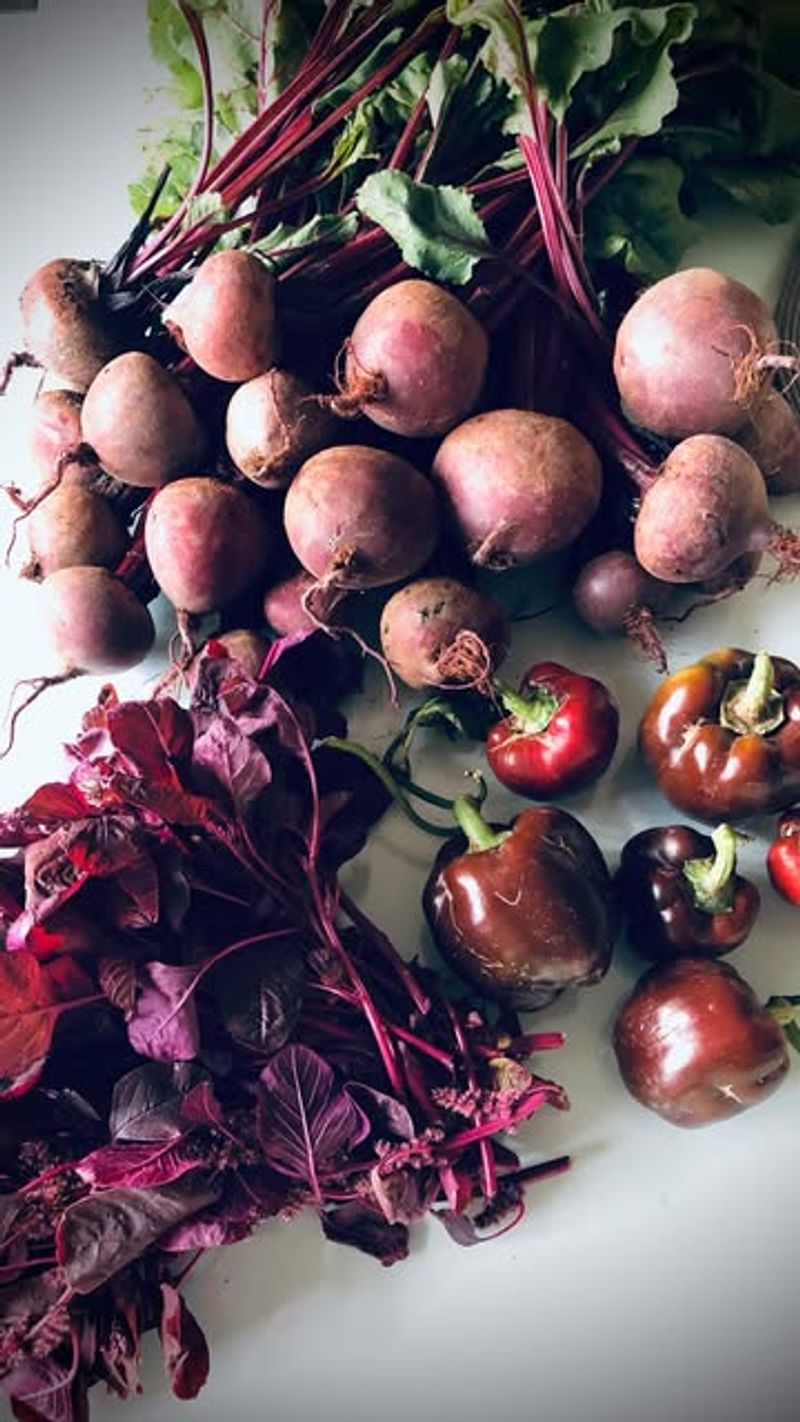
Beetroot is a root vegetable renowned for its high nitrate content, which converts into nitric oxide and aids in blood vessel dilation. This process helps lower blood pressure and improves circulation. Drinking beetroot juice or adding roasted beetroot to salads are popular ways to include it in your diet. Its earthy flavor complements a variety of dishes and provides a vibrant color that enhances presentation. Beetroot is also rich in essential vitamins and minerals, making it a nutritious addition to any meal plan aimed at supporting heart health.
4. Garlic

Garlic is a culinary staple known for its potent health benefits, including the ability to lower blood pressure. It contains allicin, a compound that promotes nitric oxide production, facilitating the relaxation of blood vessels. Adding fresh garlic to your dishes can enhance flavor while offering cardiovascular support. Whether minced, chopped, or roasted, garlic is a versatile ingredient that can elevate a variety of meals. Regular consumption of garlic has been associated with numerous health benefits beyond blood pressure regulation, including improved immune function.
5. Oats
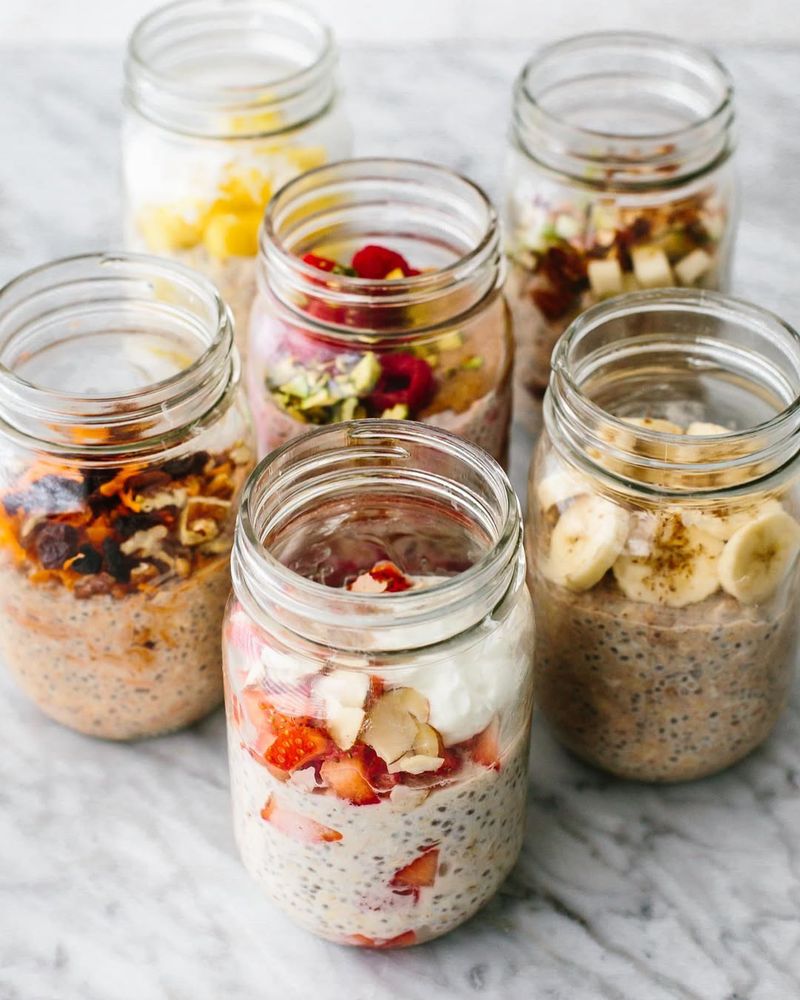
Oats are a whole grain food rich in beta-glucans, a type of soluble fiber that has been shown to reduce blood pressure levels. Starting your day with a bowl of oatmeal can provide sustained energy and support heart health. Oats can be prepared in various ways, from traditional porridge to overnight oats, making them a versatile choice for breakfast. They pair well with fruits, nuts, and seeds, allowing you to create a nutritious and satisfying meal. Consistent consumption of oats can aid in maintaining healthy cholesterol and blood pressure levels.
6. Berries
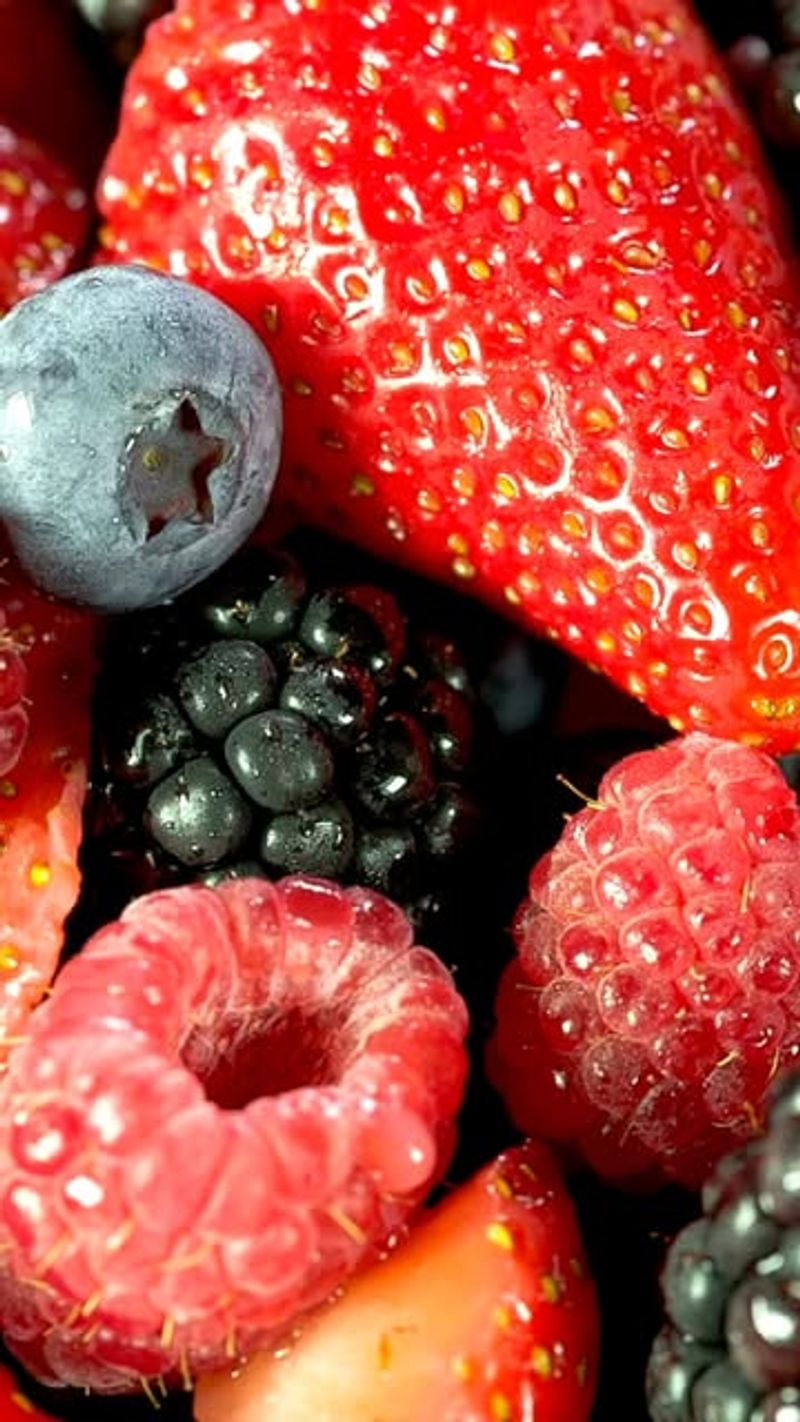
Berries, such as strawberries, blueberries, and raspberries, are rich in antioxidants, particularly flavonoids, which have been linked to lower blood pressure. These fruits are delicious, versatile, and can be enjoyed in numerous ways, from adding them to yogurt to blending them into smoothies. Their sweet and tangy flavors make them a popular choice for both snacks and desserts. Incorporating berries into your diet can provide a burst of flavor while supporting cardiovascular health. Fresh or frozen, berries retain their beneficial nutrients and can be enjoyed year-round.
7. Fatty Fish

Fatty fish, like salmon and mackerel, are excellent sources of omega-3 fatty acids, which are known to lower blood pressure and reduce inflammation. Including fatty fish in your meals at least twice a week can contribute significantly to heart health. Grilling, baking, or broiling these fish can enhance their natural flavors while preserving their nutritional value. Omega-3s in fatty fish also support brain health and reduce the risk of chronic diseases. Choose wild-caught fish for the highest quality and maximum health benefits, ensuring a delicious and nutritious meal.
8. Avocado
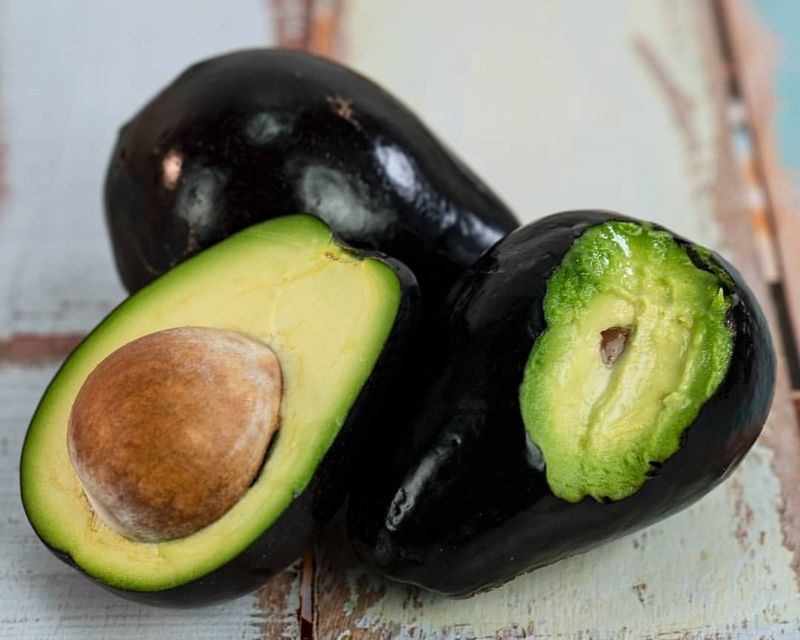
Avocado is a nutrient-dense fruit that is high in potassium and healthy monounsaturated fats, both of which play a role in maintaining healthy blood pressure levels. Its creamy texture and mild flavor make it a versatile addition to a variety of dishes, from salads to toast. Avocados are also rich in fiber, which supports overall heart health and digestion. Including avocado in your diet can help you feel satisfied and energized. Opt for ripe avocados with a slight give to the touch, ensuring the best taste and nutritional benefits.
9. Dark Chocolate

Dark chocolate is a delightful treat that contains flavonoids, compounds that promote heart health by improving blood flow and lowering blood pressure. Choosing chocolate with at least 70% cocoa content ensures a higher concentration of these beneficial compounds. Enjoying a small piece of dark chocolate as a daily indulgence can satisfy your sweet tooth while supporting cardiovascular health. Moderation is key, as dark chocolate is calorie-dense. Incorporating it into a balanced diet can provide a pleasurable experience with health benefits. Select high-quality chocolate for the best flavor and nutritional value.
10. Pomegranates
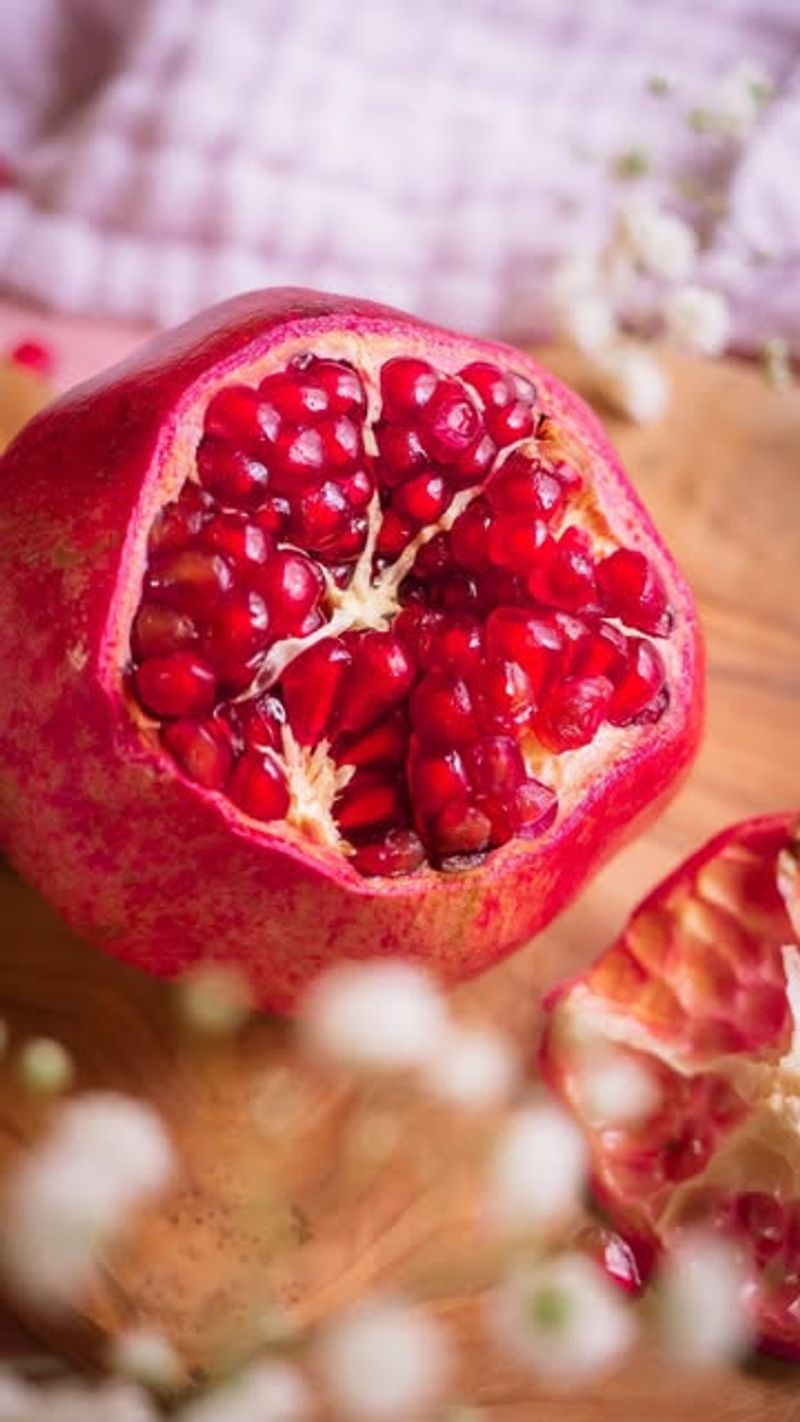
Pomegranates are a fruit known for their high antioxidant content, which has been shown to reduce blood pressure and improve heart health. Drinking pomegranate juice or enjoying the fresh seeds can provide a refreshing and nutritious addition to your diet. Their sweet and tangy taste complements both savory and sweet dishes. Pomegranates are also a good source of fiber, vitamins, and minerals, making them a valuable addition to a heart-healthy eating plan. Incorporating pomegranates into your meals can add color and flavor while supporting your cardiovascular system.
11. Nuts

Nuts, such as almonds, walnuts, and pistachios, are rich in healthy fats, protein, and fiber, all of which contribute to heart health and lower blood pressure. Snacking on a handful of nuts or adding them to dishes can provide a satisfying crunch and boost of nutrition. These nutrient-dense foods are convenient to carry and enjoy on the go. Including a variety of nuts in your diet can offer diverse flavors and textures while supporting cardiovascular health. Choose unsalted and unroasted nuts for the best health benefits and avoid excess sodium.
12. Celery

Celery is a crunchy vegetable that contains phthalides, compounds that are believed to help relax blood vessels and lower blood pressure. It is also low in calories and high in water content, making it a hydrating and heart-healthy snack. Celery can be enjoyed raw, added to salads, or used as a base for soups and stews. Its mild flavor pairs well with various ingredients, allowing you to create diverse culinary experiences. Incorporating celery into your diet can provide both flavor and nutritional benefits, supporting overall health and blood pressure management.
13. Red Bell Peppers

Red bell peppers are colorful vegetables rich in vitamin C and carotenoids, which have been associated with lower blood pressure levels. Their sweet and crisp texture makes them a delightful addition to salads, stir-fries, or as a raw snack. Red bell peppers are also a good source of fiber, supporting digestive health and overall well-being. Incorporating them into your meals can add color, flavor, and essential nutrients. Choosing fresh, organic peppers ensures the best taste and maximum health benefits, making them a valuable part of a balanced diet.
14. Kiwi
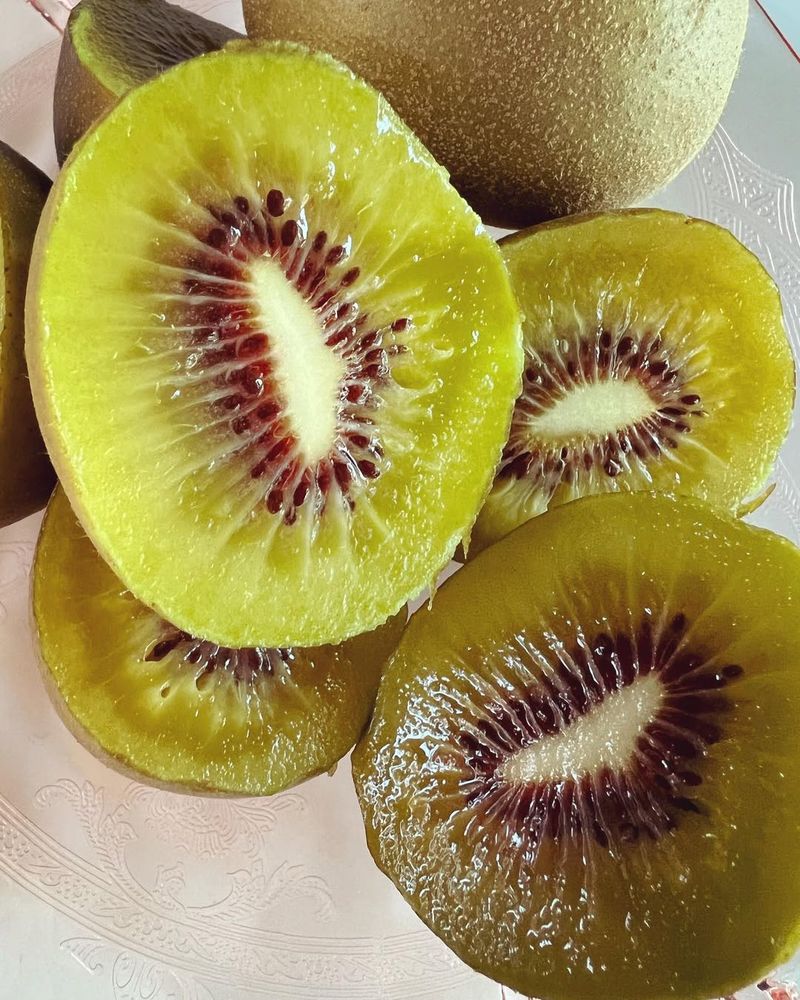
Kiwi is a small fruit with a sweet and tangy flavor, packed with vitamin C, potassium, and antioxidants that support heart health and reduce blood pressure. Its unique taste pairs well with both sweet and savory dishes, offering versatility in your diet. Enjoying a kiwi as a snack or adding it to fruit salads can boost your nutritional intake. Kiwi is also rich in fiber, promoting healthy digestion and overall well-being. Selecting ripe kiwis with a slight give to the touch ensures optimal flavor and nutritional value, enhancing your dining experience.
15. Watermelon
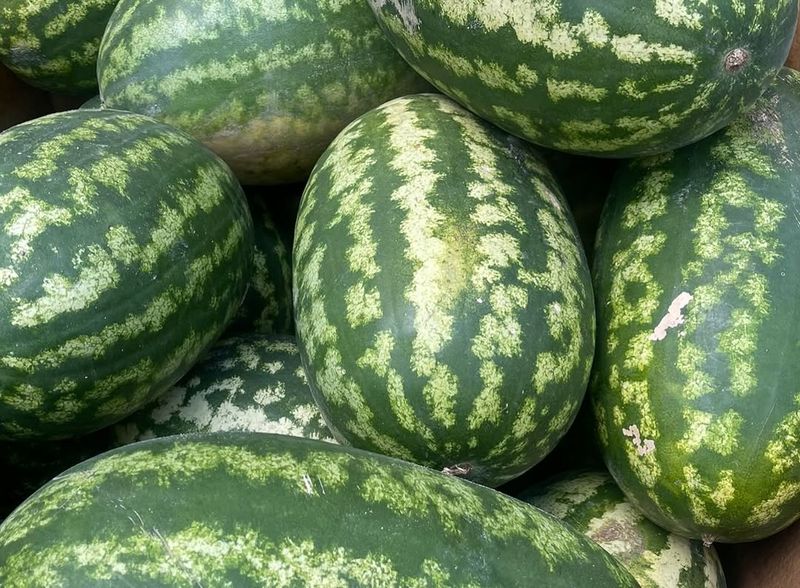
Watermelon is a refreshing fruit that contains citrulline, an amino acid that may help lower blood pressure by relaxing blood vessels. Its high water content makes it hydrating and perfect for hot days. Enjoying watermelon as a snack or adding it to fruit salads can provide a sweet and juicy treat. Its vibrant color and refreshing taste make it a popular choice for summer gatherings. Incorporating watermelon into your diet can offer both hydration and heart health benefits, supporting your overall well-being. Choose ripe watermelons for the sweetest flavor and juiciest texture.
16. Sweet Potatoes

Sweet potatoes are a nutritious root vegetable rich in potassium, fiber, and antioxidants, all of which contribute to lower blood pressure levels. Their natural sweetness and vibrant color make them a versatile ingredient for various dishes, from roasted sides to hearty stews. Sweet potatoes provide a satisfying and wholesome option for your meals, supporting both taste and nutrition. Baking or roasting sweet potatoes enhances their flavor and retains their beneficial nutrients. Including them in your diet can promote heart health and overall wellness, making them a valuable addition to your culinary repertoire.
17. Tomatoes
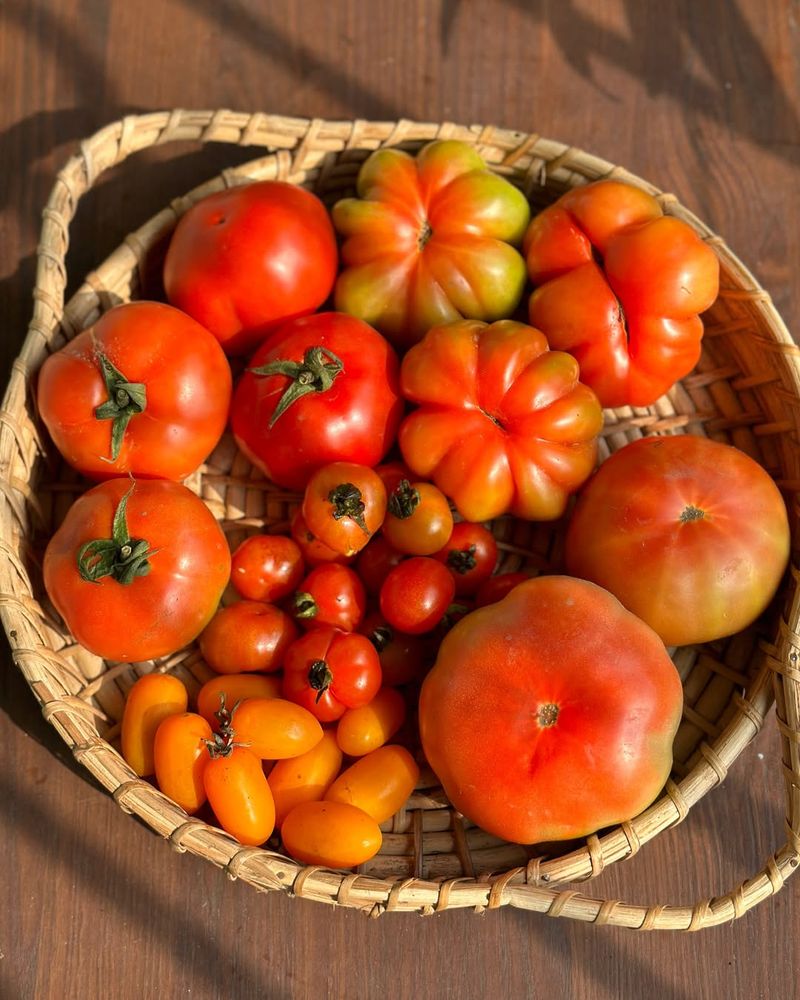
Tomatoes are a versatile fruit rich in lycopene, a powerful antioxidant linked to lower blood pressure and improved heart health. Their juicy texture and tangy flavor make them a popular choice for salads, sauces, and sandwiches. Tomatoes are also a good source of vitamins A and C, supporting overall health and well-being. Including fresh or cooked tomatoes in your meals can enhance both flavor and nutrition. Opt for organic tomatoes to avoid pesticides and ensure the best taste. Their vibrant color and rich taste make them a staple in various culinary traditions.
18. Broccoli
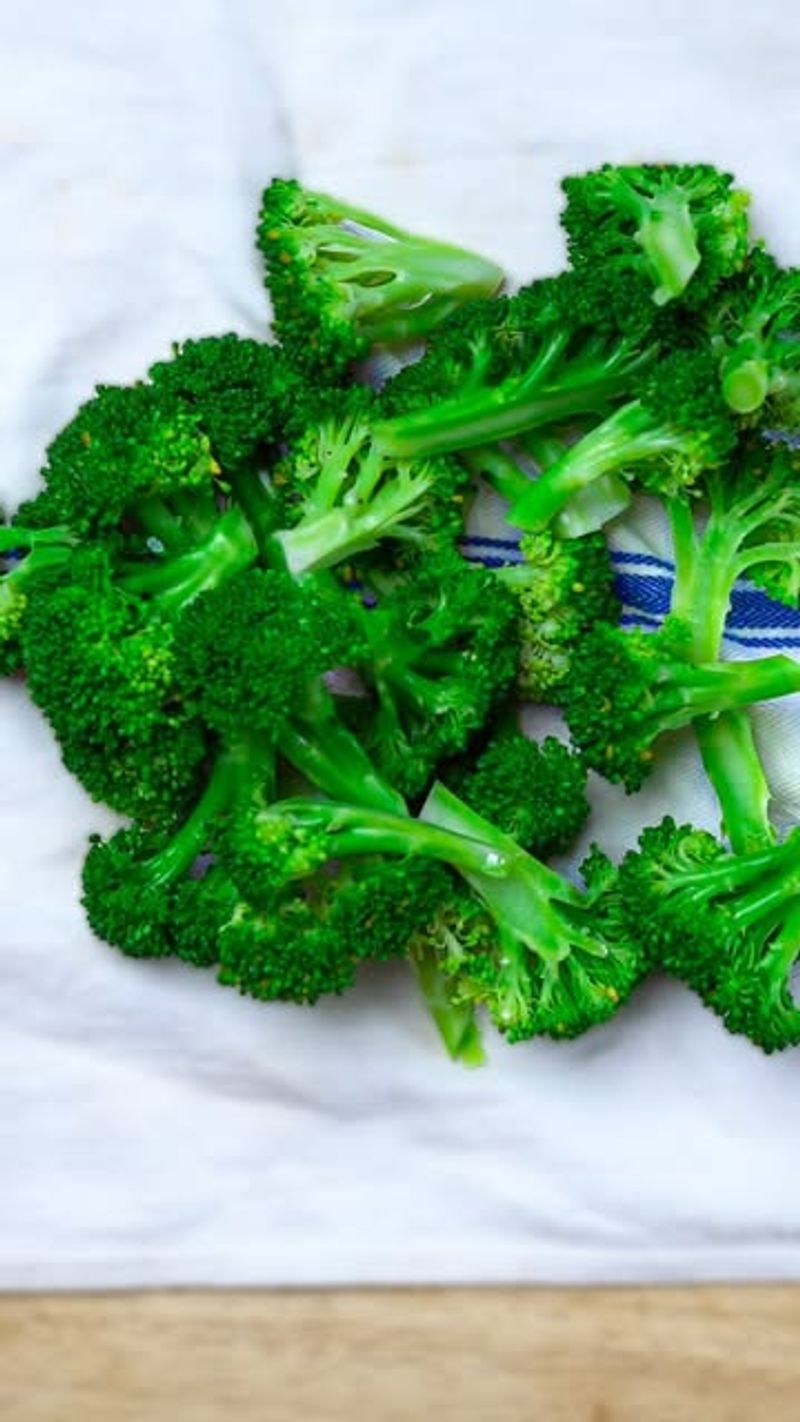
Broccoli is a cruciferous vegetable packed with nutrients, including potassium, magnesium, and antioxidants, all of which support heart health and help lower blood pressure. Its crunchy texture and mild flavor make it a versatile ingredient in various dishes. Steaming or roasting broccoli can enhance its natural taste while retaining its nutritional benefits. Including broccoli in your meals can add variety and essential nutrients to your diet. It pairs well with a range of flavors, allowing you to create diverse culinary experiences. Choose fresh, organic broccoli for the highest quality and taste.
19. Lentils
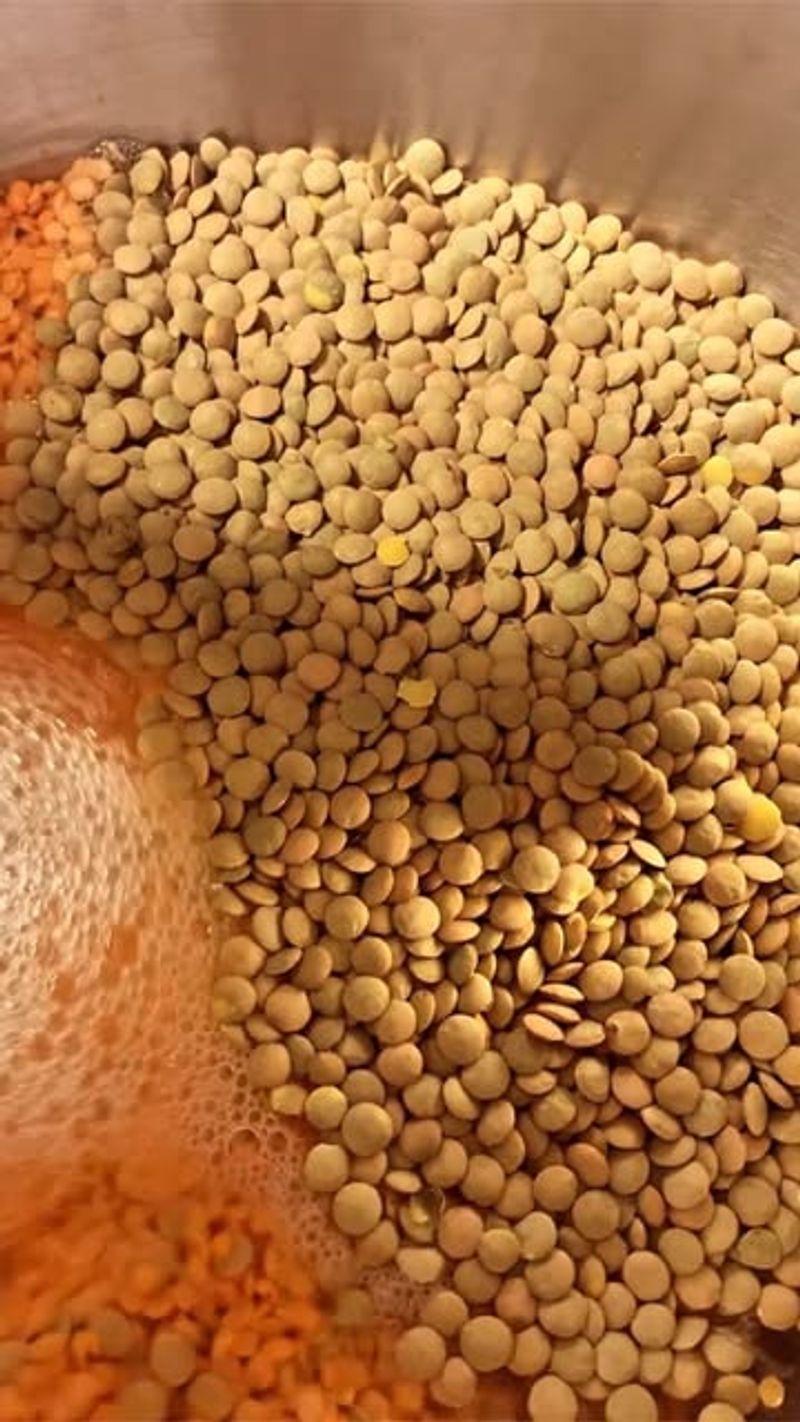
Lentils are a plant-based protein source rich in fiber, potassium, and iron, contributing to healthy blood pressure levels. Their mild taste and ability to absorb flavors make them suitable for soups, stews, and salads. Lentils provide a satisfying and nutritious option for those seeking to maintain a balanced diet. Cooking lentils is simple and quick, offering a convenient way to boost your nutritional intake. Including them in your meals can enhance both taste and health benefits. Choose a variety of lentils to explore different textures and flavors, supporting diverse culinary creations.
20. Yogurt

Yogurt is a probiotic-rich dairy product that contains calcium, potassium, and beneficial bacteria, all of which support heart health and help lower blood pressure. Its creamy texture and tangy flavor make it a versatile base for both sweet and savory dishes. Enjoying yogurt with fresh fruits or as a smoothie base can provide a nutritious and satisfying snack. Choosing low-fat or Greek yogurt can enhance the health benefits while offering a rich source of protein. Regular consumption of yogurt supports digestive health and overall wellness, making it a valuable addition to a balanced diet.
21. Green Tea

Green tea is a popular beverage known for its high antioxidant content, particularly catechins, which have been linked to lower blood pressure. Its delicate flavor and refreshing aroma make it a beloved choice for tea drinkers. Enjoying a cup of green tea as part of your daily routine can provide a calming experience while supporting heart health. Opt for high-quality, loose-leaf tea to maximize its health benefits. Green tea can be enjoyed hot or cold, offering versatility and enhancing your hydration. Regular consumption can contribute to overall well-being and cardiovascular support.
22. Citrus Fruits

Citrus fruits, such as oranges, lemons, and grapefruits, are rich in vitamin C, antioxidants, and fiber, all of which contribute to lower blood pressure and support heart health. Their juicy and tangy flavors make them a refreshing addition to both meals and snacks. Enjoying citrus fruits as whole fruits, juices, or dressings can enhance the taste and nutritional value of your diet. Citrus fruits are also hydrating, making them perfect for hot days or after exercise. Including a variety of citrus fruits in your diet can offer diverse flavors and health benefits.
